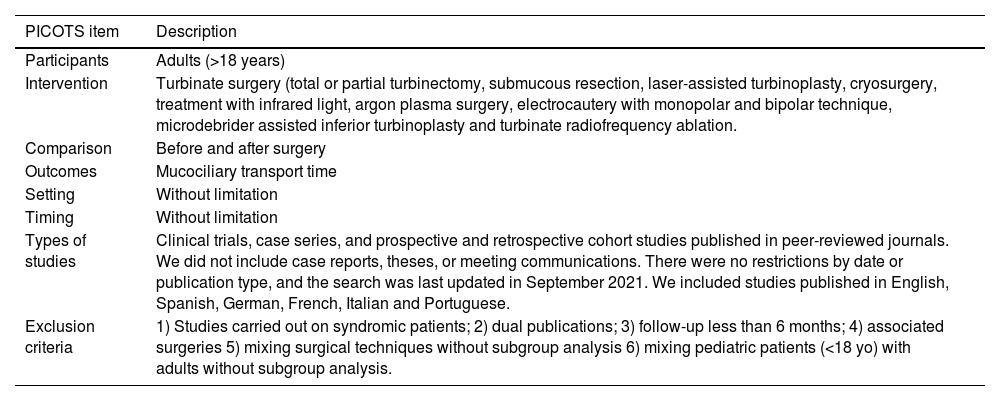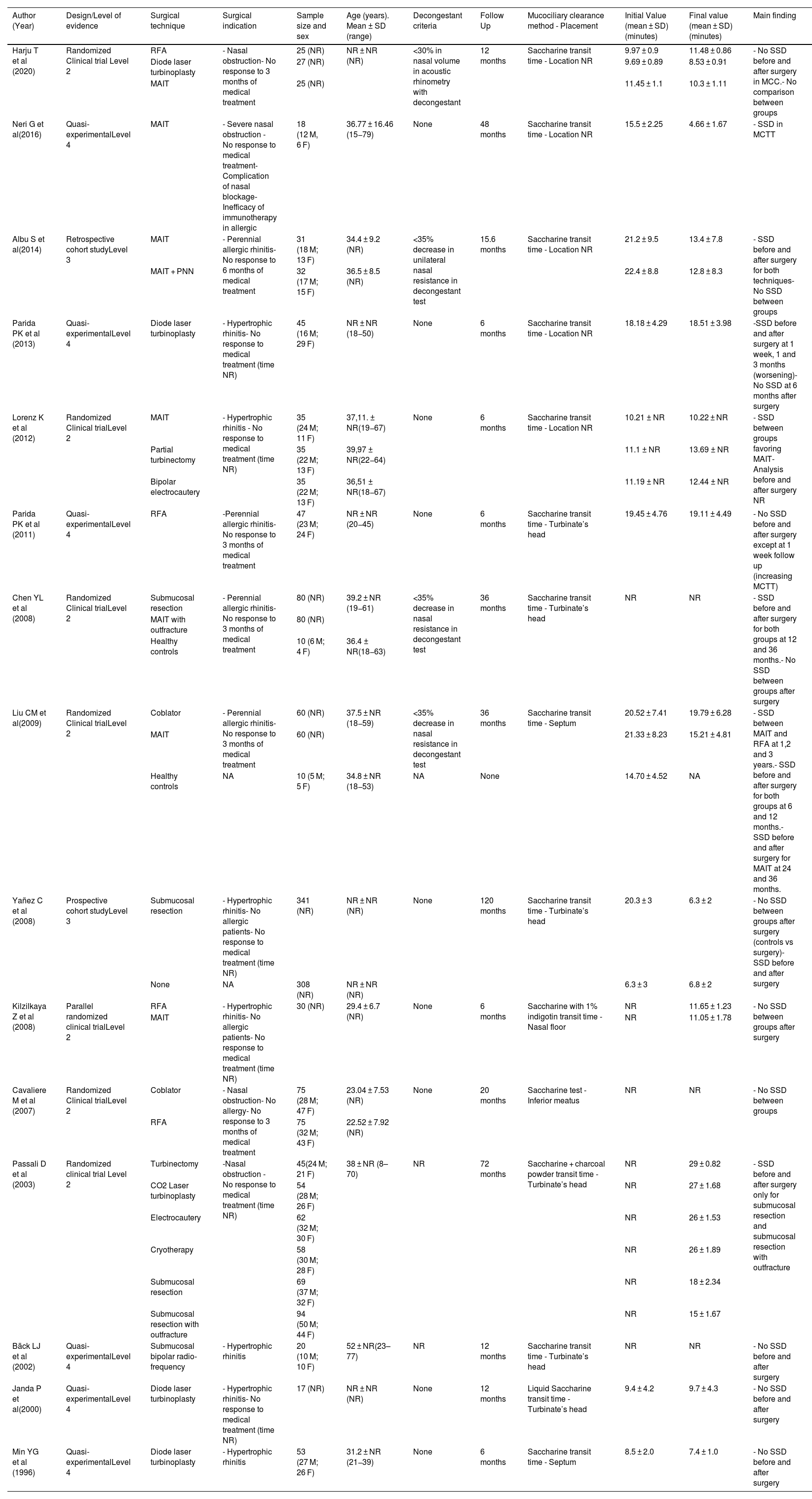Despite the fact that turbinate surgery provides satisfactory results regarding nasal obstruction, most of these procedures are destructive, to some extent, for the respiratory epithelium. There are valid hypotheses suggesting either that turbinate surgery may improve mucociliary clearance (MCC) by improving rhinitis, as well hypotheses suggesting that these surgeries may impair it by damaging the nasal ciliated epithelia. This systematic review is designed with the objective of exploring the effect of turbinate surgery on MCC. Pubmed (Medline), the Cochrane Library, EMBASE, SciELO were analyzed. Four authors members of the YO-IFOS rhinology study group independently analyzed the articles. Extracted variables encompassed: sample size, age, indication for surgery, surgical technique, method used to measure mucociliary clearance, mucociliary transport time before and after surgery, and main outcome. 15 studies with a total population of 1936 participants (1618 patients excluding healthy controls) met the inclusion criteria. 9 studies could be combined in a metanalysis, wich revealed a non-statistically significant decrease of 3.86 min in MCTT after turbinate surgery (p = 0.06). The subgroup analysis of the 5 cohorts who underwent microdebrider turbinoplasty reached statistical significance under a random effect model, revealing a 7.02 min decrease in MCTT (p < 0.001). The laser turbinoplasty subgroup, composed of 4 cohorts, also reached significance, although the difference was lower than that for microdebrider turbinoplasty, 1.01 min (p < 0.001).
This systematic review and meta-analysis suggests that turbinate surgery does not compromise mucociliary clearance. The available evidence also suggests that turbinate surgery with mucosa sparing techniques improves MCC, while with aggressive techniques it increases or remains the same. This beneficial effect is evident since the first to third month after surgery. However, for solid conclusions, a standard way to measure MCTT should be stablished, as well as a method to appropriately describe the extension of the surgery.
A pesar de que la cirugía turbinal tiene efectos positivos en la ventilación nasal, gran parte de estos procedimientos son agresivos con el epitelio respiratorio. Existen hipótesis que sugieren que la cirugía turbinal puede mejorar el aclaramiento mucociliar (AMC) al mejorar la rinitis, así como alterarlo al lesional el epitelio nasal. Esta revisión se diseña con el objetivo de explorar el efecto de la cirugía turbinal en el AMC. Se revisó Pubmed (Medline), the Cochrane Library, EMBASE, SciELO. 4 autores miembros de YO-IFOS grupo de estudio en rinología, analizaron de manera independiente los artículos. Las variables analizadas fueron tamaño muestral, edad, indicación quirúrgica, técnica quirúrgica, método de medición de AMC, AMC antes y después de la cirugía y resultado principal. Se incluyeron 15 estudios con 1936 participantes (1618 excluyendo controles sanos). 9 estudios fueron combinados en un metanálisis que demostró una diferencia no estadísticamente significativa de -3,86 minutos en AMC tras cirugía (p = 0,06). El análisis por subgrupos de las 5 cohortes sometidas a turbinoplastia con microdebridador si fueron estadísticamente significativas con una diferencia de -7,02 minutos (p < 0,001).
El grupo sometido a laser (4 cohortes) también obtuvo diferencia estadística, aunque menor, -1,01 minutos (p < 0,001). Esta revision y metaanálisis sugiere que la cirugía turbinal no afecta al aclaramiento mucociliar. La evidencia disponible también sugiere que las técnicas menos agresivas con la mucosa mejoran el AMC, mientras que las agresivas podrían aumentarlo o no modificarlo. Este efecto beneficioso se observa desde el 1º al 3º mes postquirúrgico. Sin embargo, para poder obtener adecuadas conclusiones, debe existir un método estandarizado para medir el AMC, así como un método para describir adecuadamente la extensión quirúrgica.










